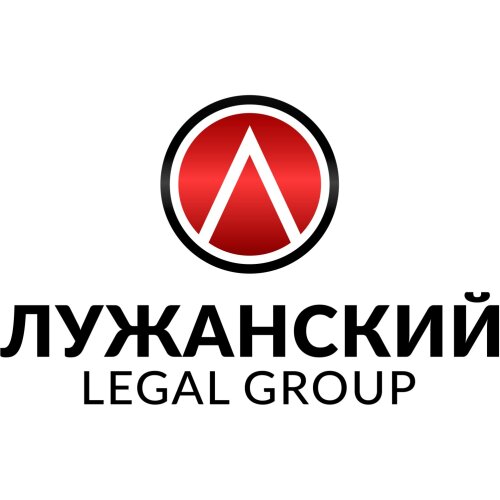Best Collaborative Law Lawyers in Bishkek
Share your needs with us, get contacted by law firms.
Free. Takes 2 min.
Free Guide to Hiring a Family Lawyer
List of the best lawyers in Bishkek, Kyrgyzstan
About Collaborative Law in Bishkek, Kyrgyzstan
Collaborative Law in Bishkek, Kyrgyzstan, represents a modern approach to resolving legal disputes. It is a voluntary process primarily used in family law where both parties and their lawyers commit to resolving their disputes outside of court. The goal of collaborative law is to reach amicable and mutually beneficial agreements without the adversarial nature of traditional litigation. This approach to conflict resolution is brought to Kyrgyzstan from Western legal systems and has gained recognition as an effective and empathetic way to settle disputes, particularly in family law matters.
Why You May Need a Lawyer
There are several common situations in which individuals might seek legal help in Collaborative Law:
- Divorce negotiations that need to be amicable and respectful.
- Child custody and support arrangements that require cooperation and positivity.
- Dispute resolution in family matters where relationships need to be preserved.
- Resolution of property division issues during a separation or divorce.
- Business partnership dissolutions where parties wish to avoid litigation.
Local Laws Overview
The collaborative legal framework in Kyrgyzstan, while still developing, is influenced by the country's civil law system, which underpins most domestic legal processes. In Bishkek, parties involved in collaborative law proceedings are guided by the principles of cooperation, good faith negotiation, and full disclosure. The emphasis on non-court settlements helps reduce the strain on the judicial system and encourages more harmonious settlements where personal relationships are preserved and respected. Understanding family law, contract law, and the local customs regarding dispute resolutions is critical for effective outcomes.
Frequently Asked Questions
What is Collaborative Law?
Collaborative Law is a legal process where both parties work with specially trained lawyers to resolve disputes in a non-adversarial manner, often avoiding court.
How does Collaborative Law differ from traditional litigation?
Collaborative Law focuses on cooperation and mutually beneficial outcomes, whereas litigation often involves conflict and adversarial proceedings in court.
Is Collaborative Law only used for divorce?
While commonly used for divorce, Collaborative Law can also be applied to other family disputes, estate planning, and business separations.
What are the benefits of choosing Collaborative Law?
The benefits include reduced stress, cost-effectiveness, more control over the outcome, and less time compared to traditional litigation.
Can Collaborative Law be used if one party prefers litigation?
Collaborative Law requires both parties to agree to the process. It is not suitable if one prefers to take the dispute to court.
What happens if an agreement is not reached in a collaborative process?
If an agreement cannot be reached, the parties can still pursue litigation, but they must hire new attorneys as collaborative lawyers cannot represent them in court.
Who ensures fair play and compliance in the collaborative process?
The process relies on all parties working in good faith. Lawyers help facilitate open and honest communication but cannot enforce outcomes.
Is Collaborative Law legally binding in Kyrgyzstan?
Yes, once the parties reach an agreement and it is formalized and signed, it is legally binding.
How do I find a Collaborative Lawyer in Bishkek?
You can seek recommendations from local bar associations, ask for referrals, or search for law firms specializing in family law and dispute resolution.
Can I involve other professionals in the collaborative process?
Yes, parties often involve financial planners, child specialists, or therapists to support and enrich the collaborative process.
Additional Resources
For further assistance, consider reaching out to the following resources:
- Kyrgyzstan Bar Association - for referrals to qualified collaborative lawyers.
- Local family mediation centers - offering supportive services for dispute resolution.
- International legal organizations promoting Collaborative Law practices.
- Community legal aid services offering guidance and support for those eligible.
Next Steps
If you find yourself needing legal assistance in Collaborative Law, start by:
- Consulting with a lawyer who specializes in Collaborative Law to assess your case suitability.
- Gathering all relevant documents and information pertaining to your dispute.
- Clearly defining your goals and desired outcomes to discuss with your legal representative.
- Exploring whether other parties involved are open to the collaborative process.
- Scheduling a consultation to explore options and flesh out a potential collaborative plan.
Collaborative law offers a unique, respectful approach to legal resolution, and with the right preparation and guidance, it can lead to positive outcomes for all parties involved.
Lawzana helps you find the best lawyers and law firms in Bishkek through a curated and pre-screened list of qualified legal professionals. Our platform offers rankings and detailed profiles of attorneys and law firms, allowing you to compare based on practice areas, including Collaborative Law, experience, and client feedback.
Each profile includes a description of the firm's areas of practice, client reviews, team members and partners, year of establishment, spoken languages, office locations, contact information, social media presence, and any published articles or resources. Most firms on our platform speak English and are experienced in both local and international legal matters.
Get a quote from top-rated law firms in Bishkek, Kyrgyzstan — quickly, securely, and without unnecessary hassle.
Disclaimer:
The information provided on this page is for general informational purposes only and does not constitute legal advice. While we strive to ensure the accuracy and relevance of the content, legal information may change over time, and interpretations of the law can vary. You should always consult with a qualified legal professional for advice specific to your situation.
We disclaim all liability for actions taken or not taken based on the content of this page. If you believe any information is incorrect or outdated, please contact us, and we will review and update it where appropriate.









